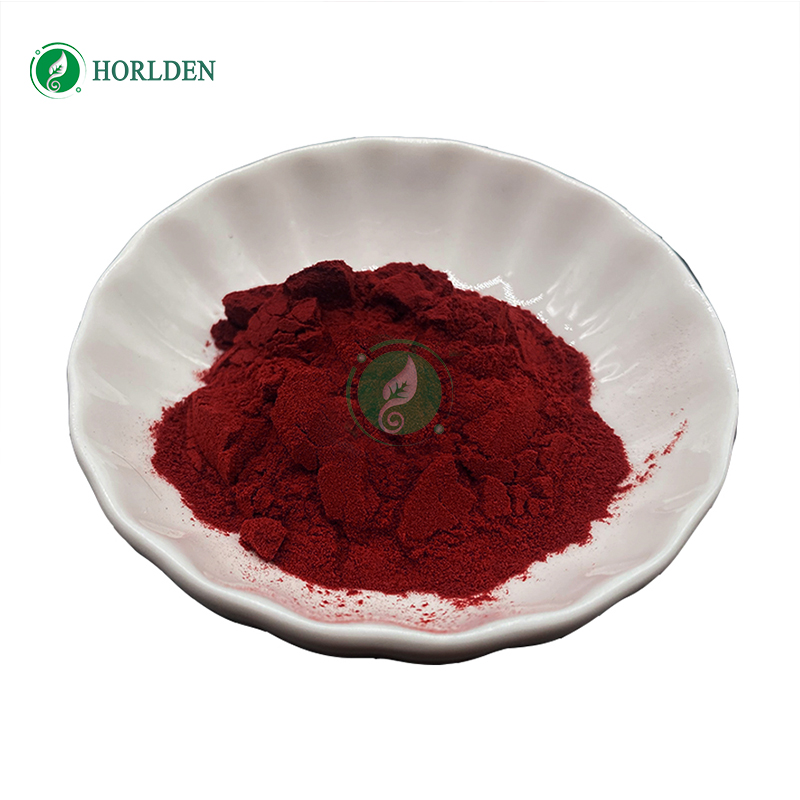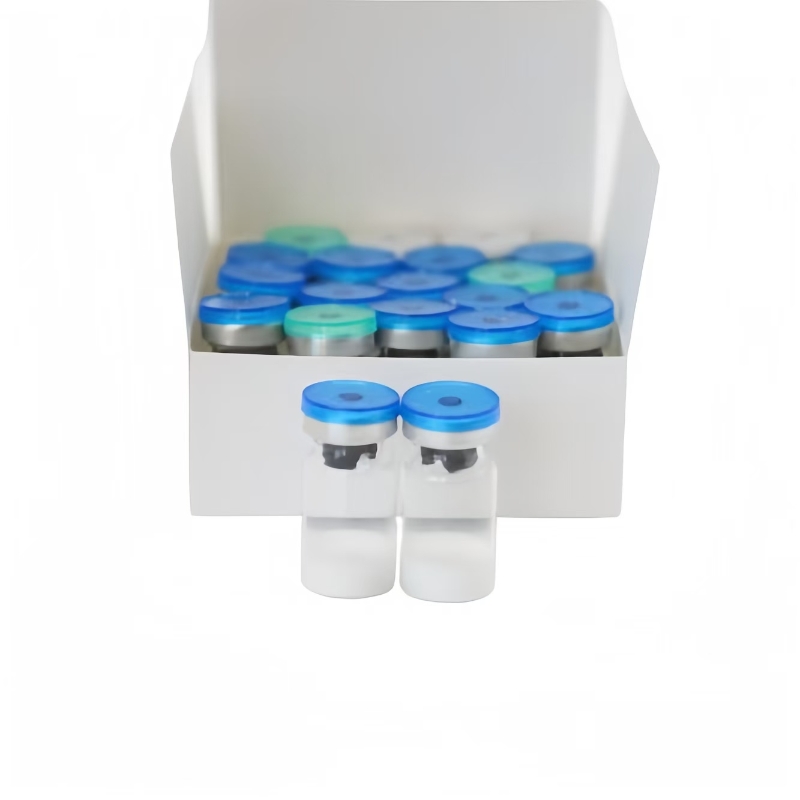Rapid expansion of TiNi in 30 billion Lung Cancer Market: 40% of the leading varieties, what are the prospects of the two domestic new drugs?
-
Last Update: 2018-06-14
-
Source: Internet
-
Author: User
Search more information of high quality chemicals, good prices and reliable suppliers, visit
www.echemi.com
On May 9, the class 1.1 innovative small molecule drug, androtinib hydrochloride capsule, independently developed by Zhengda Tianqing, obtained the registration approval and the trade name is fukewei This is the second small molecule targeted drug independently developed in China to treat advanced non-small cell lung cancer after exetinib According to incomplete statistics, among more than 40 small molecule targeted drugs developed and marketed in the world, there are 10 varieties of small molecule targeted oral drugs for the treatment of advanced non-small cell lung cancer, including erlotinib, oxitinib, darafinib, trimetinib, czotinib, gefitinib, aretinib, exetinib, seretinib and afatinib At present, China has approved the registration of seven small molecule targeted oral drugs for non-small cell lung cancer (see Table 1) The incidence rate and mortality rate of lung cancer ranked the top of cancer in many years, and thus promoted the development of the relevant treatment market According to the latest global cancer treatment trend report released by foreign countries, in 2016, the market size of global cancer treatment products and supportive treatment drugs reached US $113 billion, an increase of 5.61% over the previous year It is estimated that by 2021, the global expenditure on anti-tumor drugs and supportive drugs will exceed 147 billion US dollars In the past five years from 2013 to the first half of 2017, the U.S FDA approved 10 new drugs for the treatment of non-small cell lung cancer Five of the targeted small molecule drugs are gilotif of bringer ingelham, zykadia of Novartis, tagrisso of AstraZeneca, alecensa of Roche and alunbrid of Takeda The other five antibodies were opdivo, keytruda, cyramza, portrazza and tecentriq of Bristol Myers Squibb TiNi small molecule targeted drugs were launched in 2001 By 2017, the global sales of top 40 TiNi small molecule targeted drugs had reached US $26 billion, an increase of 13.54% over the previous year Among them, the small molecule targeted drugs for the treatment of advanced non-small cell lung cancer accounted for 18% The incidence rate of lung cancer in China is over 30 billion yuan Lung cancer is the first malignant tumor in China Lung cancer is divided into non-small cell lung cancer and small cell lung cancer, in which non-small cell lung cancer accounts for 80.4% Non-small cell lung cancer is subdivided into adenocarcinoma, squamous cell carcinoma and large cell carcinoma Different types of treatment, recovery and survival rate are quite different According to the 2015 statistics of the National Cancer Center, the incidence of lung cancer in China is about 700 thousand a year, and the incidence rate of lung cancer in China is growing by 26.9% every year EGFR, ALK and KRAS are the common gene mutation types of lung cancer in the world The mutation of EGFR in lung cancer patients in Europe and America is about 10% - 15% In China, the most common type of gene mutation in NSCLC patients is EGFR gene mutation, accounting for about 50% Chemotherapy can not only affect cancer cells but also normal cells, which inevitably brings about greater side effects and increases patients' pain Therefore, it is the most ideal treatment plan to choose targeted drugs for EGFR With the listing of anti-cancer drugs and their related generic drugs, some targeted drugs have entered the medical insurance, and the market scale of anti lung cancer drugs in China has exceeded 30 billion yuan According to the data of mienei.com, in 2016, the scale of anti-tumor drugs used in three major terminals and six major markets in China reached 129.3 billion yuan, of which 23.843 billion yuan was used in public hospitals in key cities It is predicted that in 2017, the amount of antineoplastic immunoagents used in public hospitals in key cities in China reached 26.642 billion yuan, an increase of 11.74% over the previous year In recent years, a number of targeted drugs for lung cancer have been listed successively Under the rigid demand, a number of targeted drugs for lung cancer have been approved for listing in China China has approved the listing of innovative drugs such as exetinib and apatinib, and approved the registration of imported lung cancer targeting drugs such as gefitinib, sorafenib, erlotinib, clozatinib and afatinib Among them, afatinib is a locally advanced or metastatic non-small cell lung cancer treatment drug for EGFR gene sensitive mutation, which was listed in China in July 2017, and its trade name is giotrif, thus promoting the rapid growth of lung cancer drug treatment market According to the data of mienei.com, in 2017, the amount of small molecule TiNi targeted drugs used by public hospitals in key cities to treat advanced non-small cell lung cancer was 771 million yuan, an increase of 21.08% over the previous year Under the overall coverage of national medical insurance and the improvement of people's living standards, it is expected that the growth trend of targeted drug market will continue, and the domestic Tinian market is predicted to exceed 5 billion yuan The new drugs for lung cancer published in 2017 edition of the national medical insurance catalogue include eight varieties, i.e exetane, gefitinib, recombinant human endostatin, bevacizumab, erlotinib, lapatinib, apatinib and sorafenib, which have completely changed the drug variety structure for lung cancer treatment In the past 10 years, lung cancer treatment has made great strides, and non-small cell lung cancer chemotherapy has initially formed a consensus Using targeted drugs and cisplatin plus docetaxel, paclitaxel, gemcitabine, vinorelbine and other one or several, choose different combinations, can achieve the purpose of improving efficacy and reducing toxicity Gefitinigini is a selective epidermal growth factor receptor (EGFR) tyrosine kinase inhibitor, which can competitively inhibit tumor cell proliferation, metastasis and neovascularization, improve the symptoms of metastatic non-small cell lung cancer, and thus improve the survival of patients In February 2005, gefitinib from AstraZeneca entered the Chinese market, which has a significant therapeutic effect on patients of Asian origin or no smoking history Before entering the medical insurance market, the market fluctuated greatly, but it was still the leading product in the lung cancer targeted drug market of public hospitals in key cities According to the data of mienei.com, in 2017, the market scale of gefitinib, a public hospital in key cities in China, reached 322 million yuan, an increase of 29.64% over the previous year, accounting for 40% of the market of small molecule drugs targeted for lung cancer With the launch of a new generation of domestic Tinian drugs, the market share of small molecule targeted drugs has increased year by year Domestic small molecule targeting drugs have become a new bright spot in the market China's first small molecule targeted anti-tumor drug with completely independent intellectual property right is exetane developed by Beida Pharmaceutical Co., Ltd., which was approved at the beginning of the 12th Five Year Plan and used for advanced non-small cell lung cancer The trade name is Kemena Ektini is an outstanding achievement of the national "11th Five Year Plan" and "12th Five Year Plan" science and technology major projects, and was awarded the first prize of the national science and technology progress award, which is the first time for China's chemical and pharmaceutical industry to receive this award Exetane has Chinese, American and international patents It is similar to gefitinib and erlotinib in chemical structure, molecular mechanism of action, efficacy, etc., but it has better safety, so it has been highly praised by international clinical oncologists Driven by domestic TiNi clinical drugs, it gradually broke the situation of Western drug monopoly market According to the data of mienei.com and the annual report of Beida Pharmaceutical Co., Ltd., in 2016, the overall market size of China's public hospitals in key cities was 214 million yuan; the national market of exetini was 1.035 billion yuan, an increase of 13.36% over the previous year Influenced by factors such as the price reduction of drugs entering the medical insurance, the overall market of domestic exetinib in 2017 was 1.026 billion yuan Ektinib has been included in the new version of the national medical insurance catalogue, and it seems to be the strategic goal of Beida pharmaceutical industry to exchange price for quantity However, due to the long working process from formulation to implementation of medical insurance schemes, the difficulty of market connection has brought great challenges to the sales of ektinib, and the dividend of new drugs on the market has further intensified the market competition New "Heima" androtinib and androtinib are new small molecule and multi-target tyrosine kinase inhibitors, which can effectively inhibit VEGFR, PDGFR, FGFR, c-kit and other kinases, with dual effects of anti-tumor angiogenesis and tumor growth inhibition Androtinib was written into the 2018 CSCO lung cancer guidelines It is not easy for China's original innovative drugs to obtain such an honor before they go on the market At present, arotinib is the only single effective oral preparation among the anti angiogenesis targeted drugs for advanced non-small cell lung cancer, with less adverse reactions and good patient tolerance It is expected to become the standard drug for the third-line treatment of patients with advanced non-small cell lung cancer, providing an effective guarantee for meeting the clinical drug demand, reducing the cost of drug use and promoting public health.
This article is an English version of an article which is originally in the Chinese language on echemi.com and is provided for information purposes only.
This website makes no representation or warranty of any kind, either expressed or implied, as to the accuracy, completeness ownership or reliability of
the article or any translations thereof. If you have any concerns or complaints relating to the article, please send an email, providing a detailed
description of the concern or complaint, to
service@echemi.com. A staff member will contact you within 5 working days. Once verified, infringing content
will be removed immediately.







